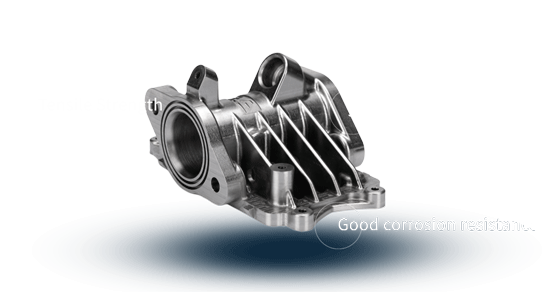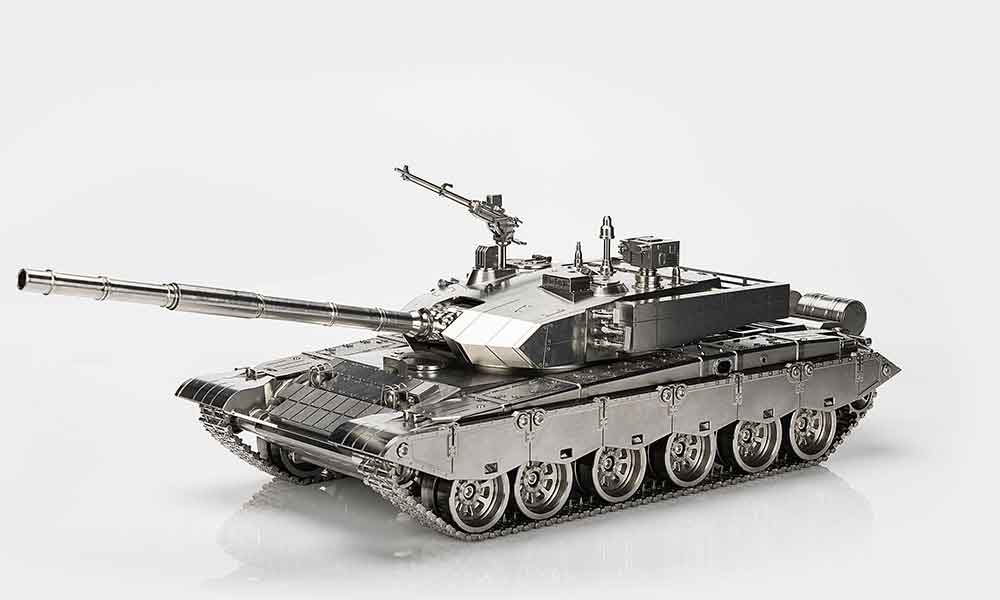Introduction
Stainless steel is the low carbon steel that offers many properties that are sought after for industrial applications. Stainless steel typically contains a minimum of 10% chromium by weight.
The material properties associated with stainless steel have made it a popular metal within a broad range of industries, including construction, automotive, aerospace and more. Within these industries, Stainless steel is versatile and is an effective choice for many applications.
Subtypes
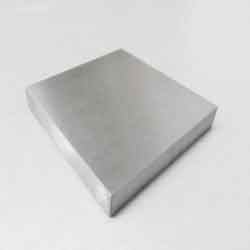
303 Stainless Steel
303 stainless steel has good machinability and does not cause cutting tools to stick. The metal is commonly used for manufacturing fittings and fasteners and demonstrates high corrosion resistance up to a certain temperature.
| Tensile Strength | Elongation | Hardness | Maximum Temp | Manufacturing Process |
| 35,000 psi | 42.5% | 95 HRB | 2550° F | CNC Mill, CNC Lathe |
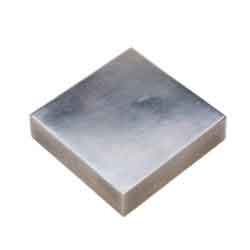
304 Stainless Steel
304 stainless steel is one of the most broadly used austenitic stainless steel materials and has a wide range of applications, from fabricating cookware to chemical-processing equipment. 304 stainless steel is especially recognized for its high corrosion resistance up to 1500° F.
| Tensile Strength | Elongation | Hardness | Maximum Temp | Manufacturing Process |
| 30,000 psi | 50% | 80 HRB | 1500° F | CNC Mill, CNC Lathe |
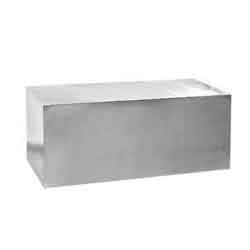
316 Stainless Steel
316 stainless steel demonstrates excellent corrosion resistant properties thanks to the addition of molybdenum and nickel. This high level of corrosion resistance makes 316 stainless steel ideal for use in harsh environments, including marine or chemical-processing applications
| Tensile Strength | Elongation | Hardness | Maximum Temp | Manufacturing Process |
| 30,000 psi | 39% | 95 HRB | 1500° F | CNC Mill, CNC Lathe |
Surface Finish
Bead blasting
Bead blasting results in parts with a smooth surface with a matte texture. Used mainly for visual applications and can be followed by other surface treatments.
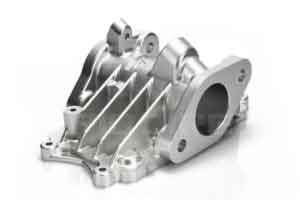
Brushing
Brushing is a surface treatment process in which abrasive belts are used to draw traces on the surface of a material, usually for aesthetic purposes. Most commonly applied to aluminum.
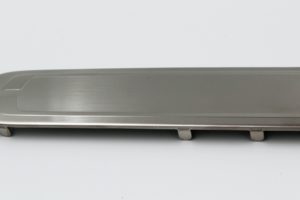
Powder Coating
Powder coating forms a durable, wear resistant and corrosion resistant layer on the surface of parts. Powder coating can be used to apply colors to parts and is compatible with any metal.
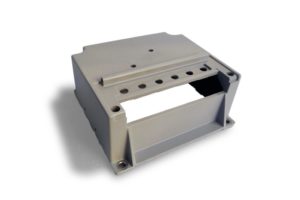
Painting
Painting the surface of a part improves its aesthetic appearance and can provide brand recognition to consumers. In addition, painting can have a protective effect on parts.
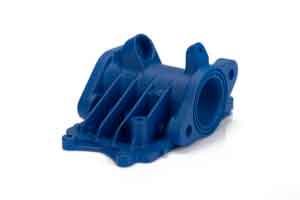
Polishing
Polishing is the process of creating a smooth and shiny surface, either through physical rubbing of the part or by chemical interference. The process produces a surface with significant specular reflection, but in some materials is able to reduce diffuse reflection.
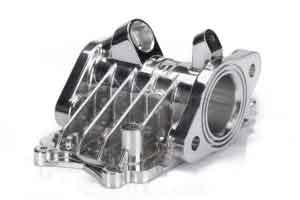
Manufacturability
Tolerance
Standard: (+/-) 125 µm -Achievable: (+/-) 100 µm , (+/-) 50 µm
Wall Thickness
The minimum wall thickness should be at least 1 mm for machined parts. - 2 mm is suggested for better strength. - 2.5 mm is suggested for rigid walls
Pocket depth
Pocket depth should be up to 3 times the diameter of the end mill
Engraving
Engraving is preferable to embossing - For the clear, legible text consider fonts such as Arial or Gothic - Design letter strands with a width of at least 2 mm.
Internal Radii
The minimum internal radii possible is 1 mm - In general, internal radii dimensions depend on the depth of pocket being milled
Holes
Use standard drill bit sizes - Minimum of 1 mm in diameter
Threads
Use standard metric inserts - Smallest threaded insert possible is M2
Design Recommendations
304 stainless steel has a medium hardness, making it easier to cut, and generally has the lowest cost.

Instant Quote & Order
Only 4 simple steps to complete your project. Follow the instruction and give it a try!
Latest news and stories
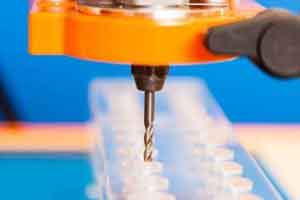
Understanding Plastic Fabrication Processes: A Complete Guide
Plastics are versatile materials with plenty of polymer options. They are among the most common […]
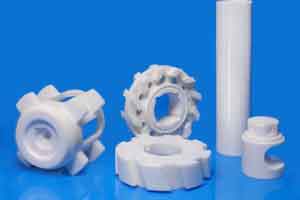
Ceramic CNC Machining: Another Option for Custom Manufacturing
It could be quite a cumbersome task to choose the best material for your manufacturing […]
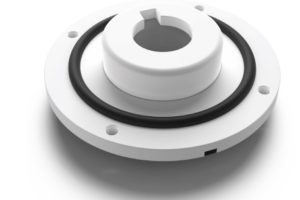
The Overmolding Design Guide You Must Never Forget
Overmolding is an injection molding process where you cast a layer of resin (usually a […]
